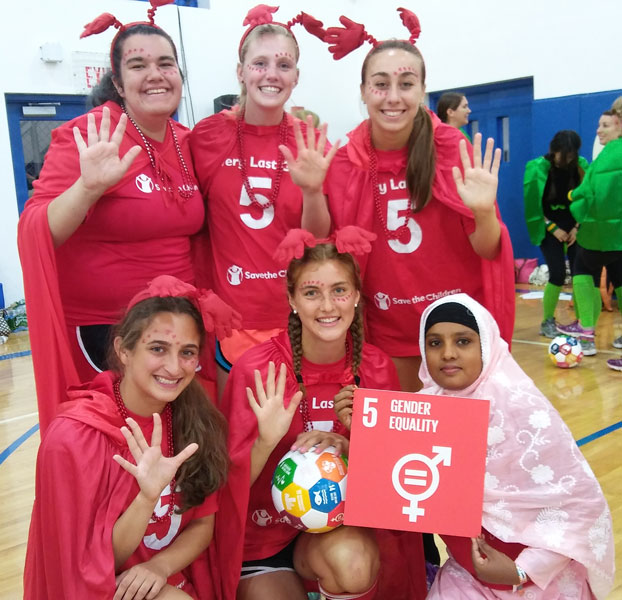
Anoyara Khatun (20) of Chhoto Askara village in North 24 Parganas of West Bengal dreams of a world where every child is aware of his or her rights and fights hard to safeguard them. She is better described by the villagers and her friends as their “own Malala”, and her achievements are considerable indeed. On International Women’s Day this year, she was honoured with the Nari Shakti Puraskaar by President Pranab Mukherjee for her contribution towards women’s empowerment.

A second-year college student, Anoyara has visited the United Nations in New York twice, where she spoke about child rights and girls’ education at the UN General Assembly, and is thrilled to have met UN General Secretary Ban Ki Moon, Microsoft co-founder Bill and Melinda Gates. But she regrets that she could not interact with Malala Yousafzai, although she too was at the UN office.
I understand the plight of trafficked children better because I have been a victim like them.
She heads around 100 child groups in 80 villages of Sandeshkhali and Minakhan blocks that work to create awareness among children about their rights, and who take prompt action whenever a child is being trafficked or child marriages are being conducted.
She has managed to foil over 200 trafficking attempts, helped rescue and unite over 300 children with their families and got several dropouts back into school.
Referring to her dream of a world where children are aware of their rights and know whom to approach for violation of their rights, Anoyara says, “I don’t want to keep my work confined to the boundaries of my village. I want to take it across the globe. It’s impossible for me to do everything alone as I need the help and support of hundreds of children to achieve my goal.” Her child committees are proactive in the villages and keep a tab on every new visitor. Each time a new visitor enters a village, news of his/her activities is circulated among the child groups who then keep a tab on that person. Any suspicious activity is reported to the village head. “In this way, we have stopped hundreds of children from being trafficked. It is difficult for any fresh visitor to escape the watchful eyes of our activists,” she says with a sense of pride.

But the stark poverty in her village makes her work challenging. “We often face resistance from families who are bent on sending their children with traffickers because of poverty. It is difficult to save the children from their clutches. In such cases, we try to connect their families with different employment schemes run by the government.”
The proximity of her block with the porous Bangladesh border makes her work even more challenging. “The Sandeshkhali block is just a few kilometers away from the traffic-prone Bangladesh’s border. Several girls are trafficked every year to West Bengal and other States through this route. We try our best to nab the traffickers and rescue the girls, despite numerous threats, and we celebrate with a feast whenever a child is rescued or saved from the clutches of traffickers,” she smiles.
Anoyara has managed to foil over 200 trafficking attempts, helped rescue and unite over 300 children with their
families and got several dropouts back into school.
Anoyara is internationally recognised for her work. She was nominated for the International Children’s Peace Prize in 2012, an award that went to Malala the next year. In 2013, she represented India at the ‘Save the Children’ educational conference at Brussels. In 2014, the West Bengal government felicitated her. Her journey as an international child rights crusader has been a bumpy ride full of vitriolic attacks.
Born in 1996, Anoyara is the youngest of four siblings. She lost her father when she was only five. Her mother, employed as a cook in a local school, raised the family but life was hard. At 12, Anoyara was trafficked to Delhi where she was forced into domestic labour. It took a year for her to return home.
She was 13 when she came in contact with the Dhagagia Social Welfare Society-run multi-activity centre that worked against human trafficking and decided to join them. “I thought that I would understand the plight of the trafficked children better because I had been a victim like them,” she says.
But it was easier said than done. She faced severe resistance and verbal assaults from the villagers who thought she had some ulterior motive behind her efforts.
Anoyara, however, refuses to talk much about her past. “The brickbats have now turned into flowers. People compliment me for my work and I have received recognition across the globe.”
When asked if she wants to marry and start her family, she says, “Well, I never had time to think about it.”





